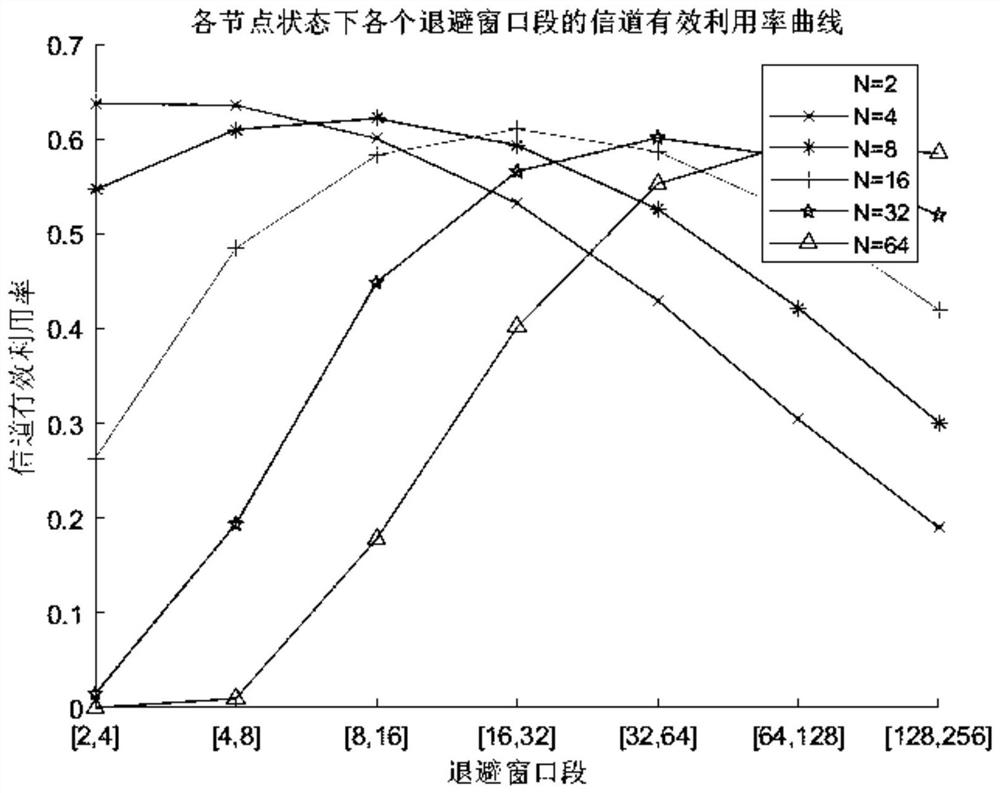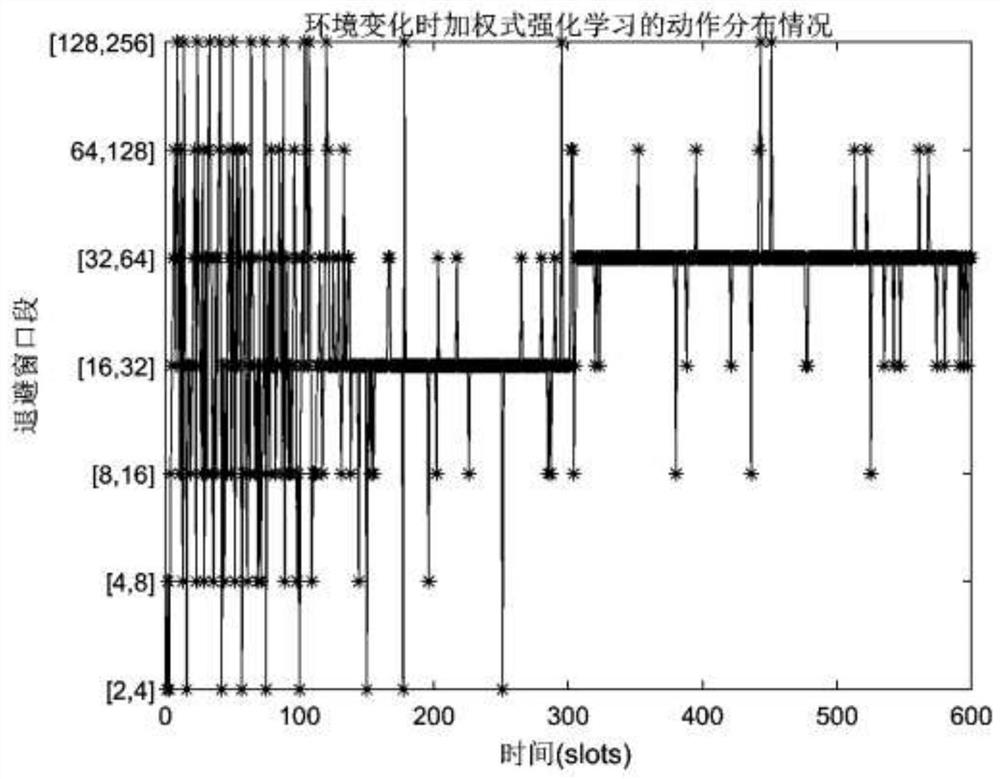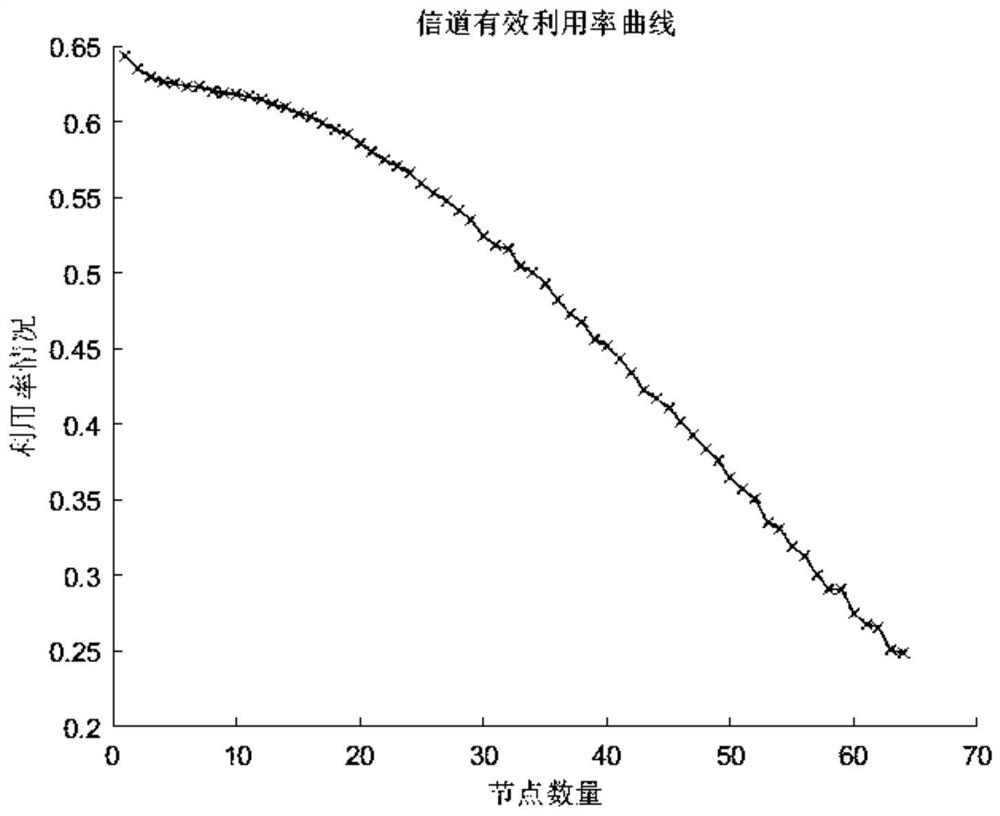Segmented backoff algorithm based on weighted reinforcement learning
A technology of reinforcement learning and backoff algorithm, applied in complex mathematical operations, advanced technology, climate sustainability, etc., can solve problems such as increased probability of collision, increased channel access failures, and unfair competition to access channels.
- Summary
- Abstract
- Description
- Claims
- Application Information
AI Technical Summary
Problems solved by technology
Method used
Image
Examples
Embodiment Construction
[0030] The following description serves to disclose the present invention to enable those skilled in the art to carry out the present invention. The preferred embodiments described below are only examples, and those skilled in the art can devise other obvious variations. The basic principles of the present invention defined in the following description can be applied to other embodiments, variations, improvements, equivalents and other technical solutions without departing from the spirit and scope of the present invention.
[0031] In the preferred embodiment of the present invention, those skilled in the art should note that the first algorithm involved in the present invention, the IEEE 802.15.4 CSMA / CA protocol, etc. can be regarded as prior art.
[0032] preferred embodiment.
[0033] The invention discloses a segmented back-off algorithm based on weighted reinforcement learning, which is used to improve the channel effective utilization rate of a wireless sensor network...
PUM
 Login to View More
Login to View More Abstract
Description
Claims
Application Information
 Login to View More
Login to View More - R&D
- Intellectual Property
- Life Sciences
- Materials
- Tech Scout
- Unparalleled Data Quality
- Higher Quality Content
- 60% Fewer Hallucinations
Browse by: Latest US Patents, China's latest patents, Technical Efficacy Thesaurus, Application Domain, Technology Topic, Popular Technical Reports.
© 2025 PatSnap. All rights reserved.Legal|Privacy policy|Modern Slavery Act Transparency Statement|Sitemap|About US| Contact US: help@patsnap.com



